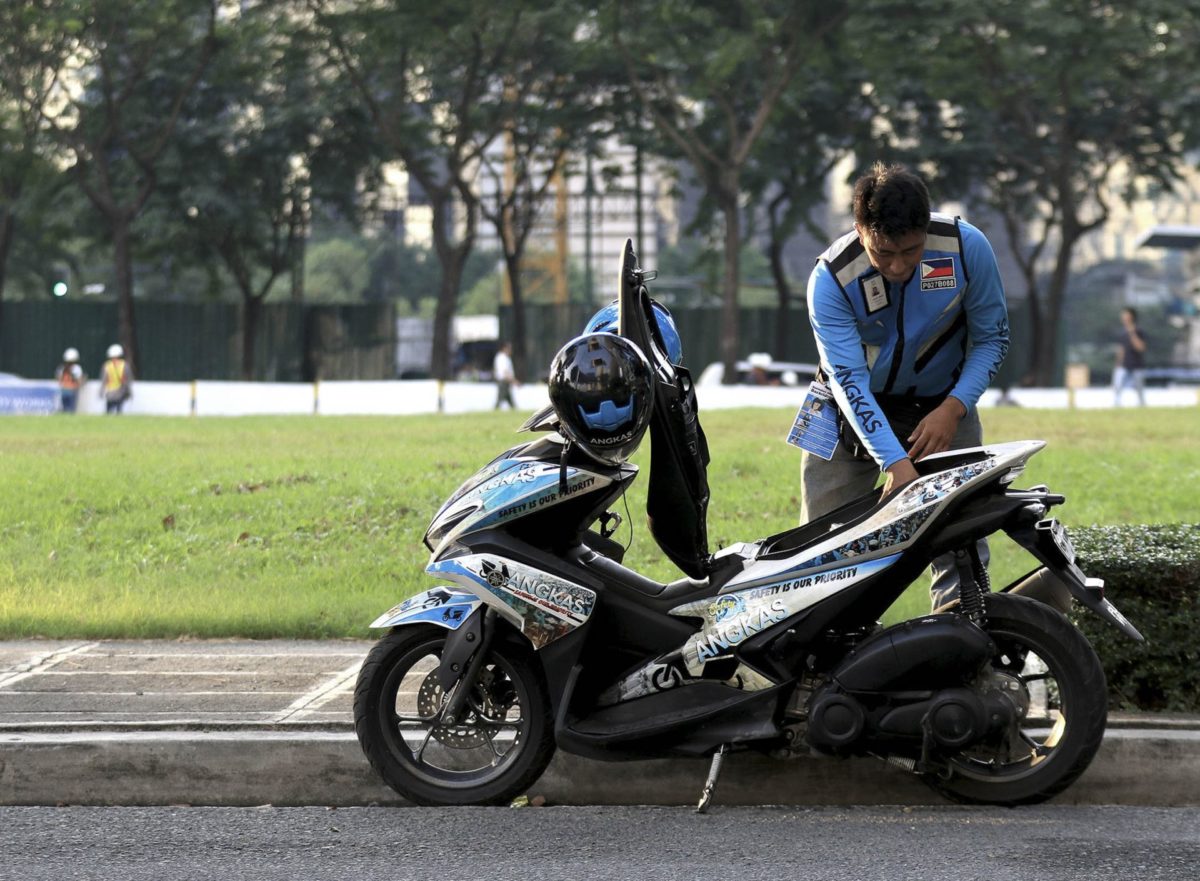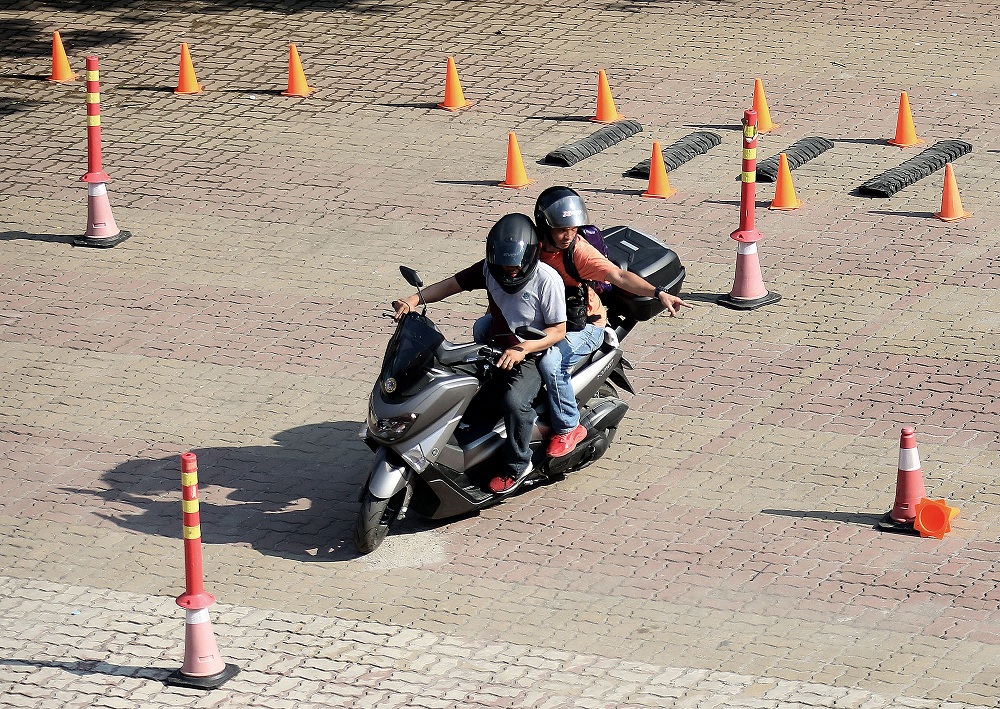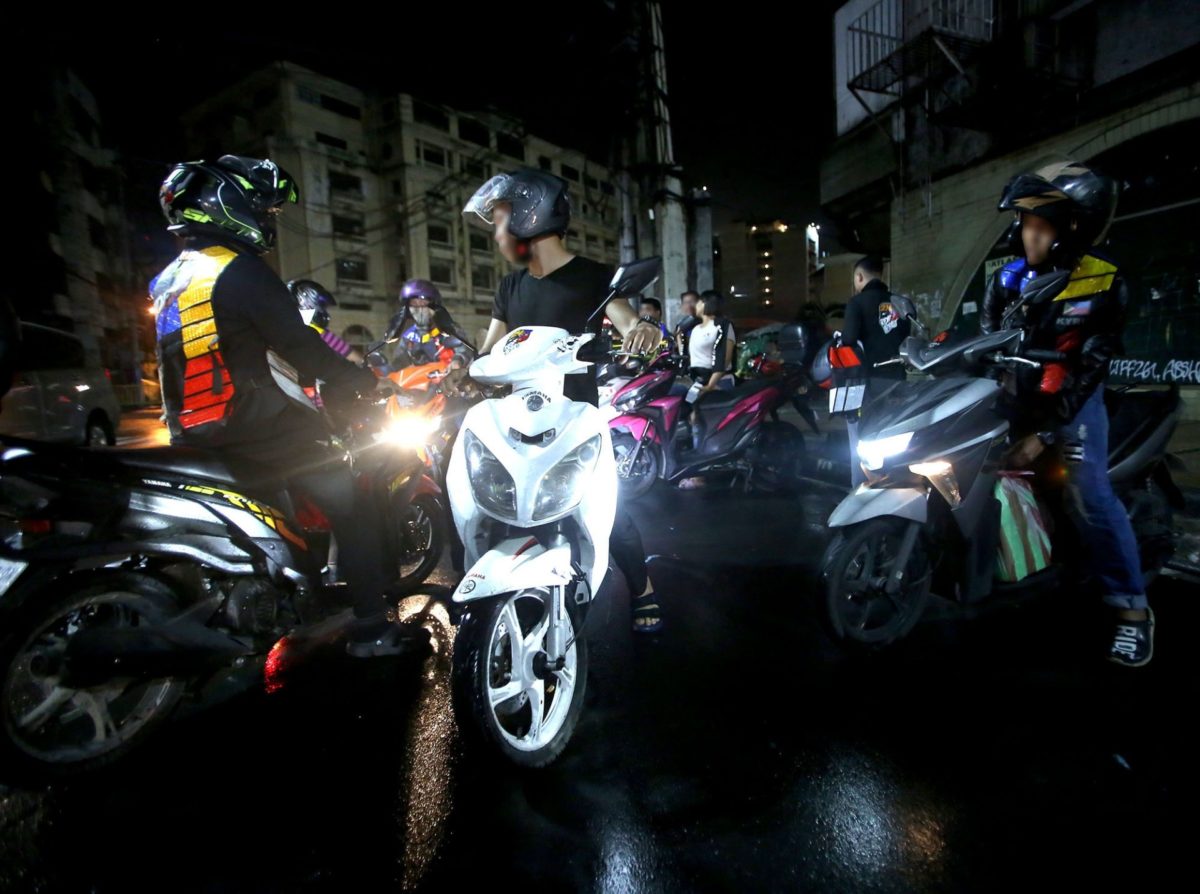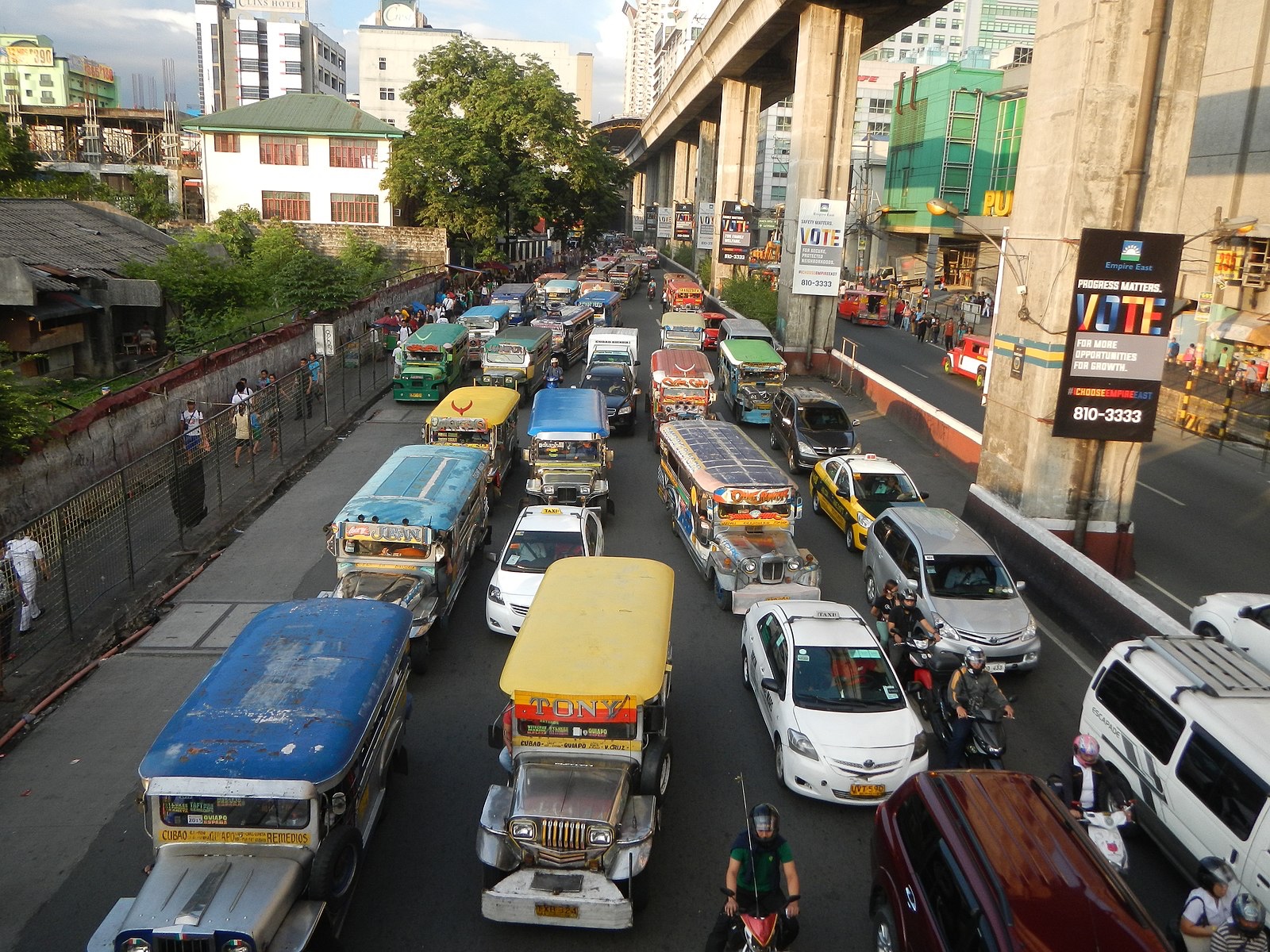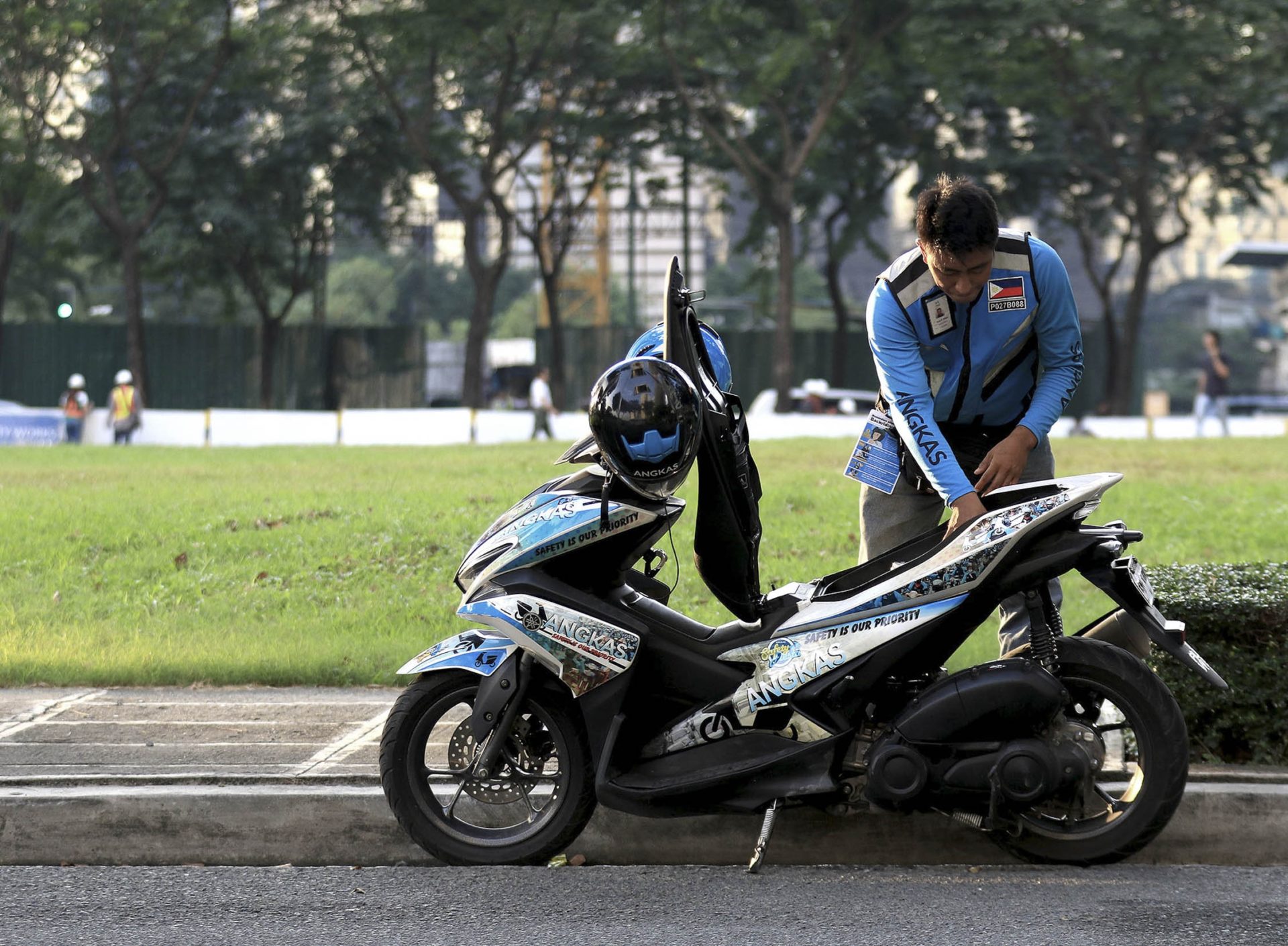
(Last of three parts)
Ryan Rillera knew he was taking a high risk when he quit the relative stability of his job as a fast food branch manager two years ago. Income was steady, he said, but his odd shifts meant spending more time at work than with his family.
“There was no fulfillment then,” he said. So he took a leap of faith and became a driver for the popular motorcycle-hailing app Angkas.
But the platform then was in a state of constant disruption. Transport regulators cracked down hard on the service that offered bikes for hire, which is illegal under Republic Act No. 4136. It was shut down twice, in 2017 and in 2018, until traffic congestion and the rising demand for mobility options forced the government to reconsider legalizing and regulating the motorcycle taxi industry.
When the Department of Transportation (DOTr) allowed Angkas in May to undergo a six-month, highly regulated pilot test to see whether bikes could be used for public transport, Rillera said, he allowed himself to hope that his livelihood would finally be legitimized.
“We really want to restore the public’s trust in motorcycle taxis like us,” he said. “We want to show them that we can keep them safe.”
But as the deadline nears, the pending congressional bills that would amend RA 4136 have yet to move from first reading. Now Angkas is angling for an extension to avoid having to operate again outside government jurisdiction and exposing itself anew to law enforcement.
At the opening of the 18th Congress, five senators authored bills that would legitimize motorcycles for hire: Grace Poe, Ralph Recto, Nancy Binay, Imee Marcos and Sonny Angara. There are 13 counterpart bills in the House of Representatives.
A number of motorcycle owners say that, among the bill sponsors, they were relying most on Poe to uphold their cause. The senator, who also heads the committee on public services, has been the most vocal about providing commuters more options, provided these are subject to rigorous standards to ensure passenger safety.
Most vulnerable road users
The World Health Organization, which considers road safety as not only a public health but also a transport issue, consistently ranks motorcyclists among the most vulnerable road users in the world.
In the Philippines alone, where bikes comprise more than half of all registered vehicles, motorcycle drivers and passengers accounted for more than half of the total crash fatalities in 2016.
This is because of the inherent riskiness of bikes as open vehicles, as well as other risk factors like reckless behavior (drunk driving, nonuse of helmets) and prevailing road conditions, said Transportation Undersecretary for Road Transport and Infrastructure Mark de Leon.
“It’s why the government has never considered motorcycles for public transport,” De Leon said. “You’re really exposed. In cars, even if your passengers fall asleep and you get in a crash, there’s a chance you would survive. On a bike, even a minor crash could injure you. That’s why for a very long time we defended against having motorcycle taxis for public transport.”
Motorcycles as public transport have existed for decades, starting in the rural areas where public utility vehicles are scarce, said Martin Delgra, chair of the Land Transportation Franchising and Regulatory Board (LTFRB). It has never been an issue in Metro Manila until the early 2000s, when the construction of the erstwhile inaccessible Bonifacio Global City in Taguig prompted enterprising bikers to begin offering rides for a fee.
Now, severe congestion in the metropolis and deteriorating public transport have made motorcycle taxis an actual necessity, said Toix Cerna of the commuter advocate group Komyut.
“While the goal of mobility is to move people and not cars, it can’t be argued that if we don’t provide more alternative transport options for the commuters, the entire economy would grind to a halt,” Cerna said.
Congress’ move
While the DOTr convened a technical working group to determine whether motorcycles could be made safe for public transport in December 2018, it was Congress that urged the department to launch the ongoing six-month pilot test for Angkas, De Leon said.
But the DOTr expected lawmakers to pass the bills into law in time for the completion of the pilot test.
“You don’t want to leave a gap [between the implementation test and the ratification of the bills],” De Leon said, adding that Congress could very well proceed with reading the bills while waiting for the initial results of the pilot test. “In fact, once they do conduct the hearings, we can already present [the results].”
But for Poe, the passage of the bills into law is “not dependent on the pilot test of Angkas, and is not influenced by any one group, person or entity.”
“Senate Bill No. 128 is no longer new to the 18th Congress as a similar bill was already opened for discussion and scrutiny during the 17th Congress. We are expecting that this 18th Congress, it would finally become law as both the houses of Congress are supportive of this bill,” she said in an email interview.
With the December deadline looming, Angkas operations head David Medrana said the group was hoping to get an extension from Congress to allow them to operate longer.
Medrana refused to go into specifics beyond saying that the pilot test was going well, with Angkas’ safety record still at a low 0.003 percent accident rate.
What will the process of legalizing motorcycle taxis entail? According to Poe, lawmakers would only have to amend RA 4136 to classify two-wheeled vehicles for public transport.
The law would also “provide for the registration classification of motorcycles for hire, liability and diligence required, roadworthiness of motorcycles, fare setting, prescribing of routes, and of course, penalties for violations of the proposed law,” she said.
This amendment will cover not only bikes registered on an app-based platform such as Angkas, but even habal-habal, Poe said.
“The proposed law applies to all motorcycles that would be utilized for public transportation, with or without use of ride-hailing apps, with or without use of online platforms,” she added.
Angkas has long taken pride in its first-of-a-kind rigorous safety and skills training and harassment seminars for its drivers, which previously did not exist because of the lack of training schools for bikers, Medrana said.
Regulated industry
At a public forum on roads and traffic, Angkas public affairs head George Royeca also envisioned a regulated industry where the onus fell on the government as much as on the industry.
This means providing more training schools for bikers and regulating the purchase and sale of motorcycles “to make sure that every single citizen who buys it knows how to use it.”
“If we can institutionalize these standards across the country, we’ll have better motorcycle riders,” Royeca said.
Cerna, the commuters’ advocate and a member of the DOTr’s technical working group, challenged both sectors to “come up with a regulation system with incentives” that would encourage the informal economy—the habal-habal—to follow the same standards.
Now that Angkas is currently oversaturated by demand, more and more commuters are turning to riskier options like Facebook, whose riders don’t provide the same safety nets (insurance and better equipment) as Angkas’.
If the incentives are not good, Cerna said, more bikers and commuters would likely remain in the informal economy because “it’s cheaper even if they are less protected.”
Ultimately, however, the government must provide better mass transit options for commuters to erase the need for motorcycle taxis altogether.
“The increasing demand for motorcycle taxis as a main option is a signal that something is wrong. This is the long game here. If you can provide better public services, all of these would go away. But they’re here right now because they’re needed,” Cerna said. “We’re really just not doing enough.”
This report, which first appeared on the Inquirer, was produced under the Road Safety Journalism Fellowship carried out by Vera Files and the World Health Organization under the Bloomberg Initiative for Global Road Safety.)
